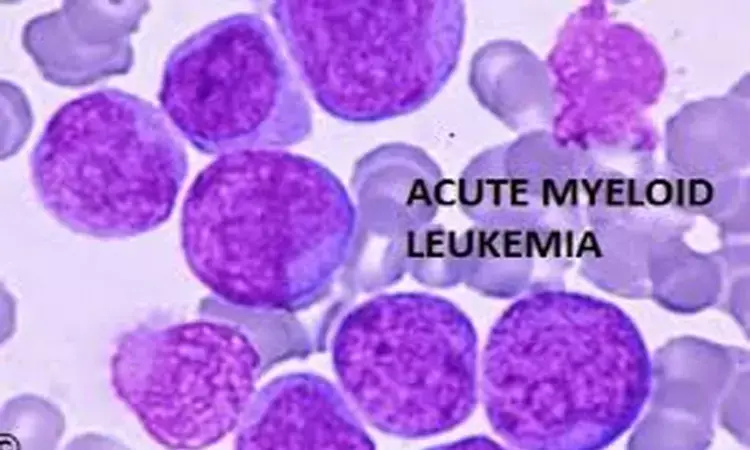- Home
- Medical news & Guidelines
- Anesthesiology
- Cardiology and CTVS
- Critical Care
- Dentistry
- Dermatology
- Diabetes and Endocrinology
- ENT
- Gastroenterology
- Medicine
- Nephrology
- Neurology
- Obstretics-Gynaecology
- Oncology
- Ophthalmology
- Orthopaedics
- Pediatrics-Neonatology
- Psychiatry
- Pulmonology
- Radiology
- Surgery
- Urology
- Laboratory Medicine
- Diet
- Nursing
- Paramedical
- Physiotherapy
- Health news
- Fact Check
- Bone Health Fact Check
- Brain Health Fact Check
- Cancer Related Fact Check
- Child Care Fact Check
- Dental and oral health fact check
- Diabetes and metabolic health fact check
- Diet and Nutrition Fact Check
- Eye and ENT Care Fact Check
- Fitness fact check
- Gut health fact check
- Heart health fact check
- Kidney health fact check
- Medical education fact check
- Men's health fact check
- Respiratory fact check
- Skin and hair care fact check
- Vaccine and Immunization fact check
- Women's health fact check
- AYUSH
- State News
- Andaman and Nicobar Islands
- Andhra Pradesh
- Arunachal Pradesh
- Assam
- Bihar
- Chandigarh
- Chattisgarh
- Dadra and Nagar Haveli
- Daman and Diu
- Delhi
- Goa
- Gujarat
- Haryana
- Himachal Pradesh
- Jammu & Kashmir
- Jharkhand
- Karnataka
- Kerala
- Ladakh
- Lakshadweep
- Madhya Pradesh
- Maharashtra
- Manipur
- Meghalaya
- Mizoram
- Nagaland
- Odisha
- Puducherry
- Punjab
- Rajasthan
- Sikkim
- Tamil Nadu
- Telangana
- Tripura
- Uttar Pradesh
- Uttrakhand
- West Bengal
- Medical Education
- Industry
PARP inhibitors increase risk of myelodysplastic syndrome and acute myeloid leukaemia: Lancet study

Investigators at the Normandie University, Interdisciplinary Research Unit for Cancer Prevention and Treatment, Biology and Innovative Therapeutics for Ovarian Cancers Team, Caen, France have recently observed that PARP inhibitors have increased the risk of myelodysplastic syndrome and acute myeloid leukemia versus placebo treatment.
The study is published in the Journal of Lancet Hematology.
Poly(ADP-ribose) polymerase (PARP) inhibitors have shown efficacy and acceptable safety in a range of neoplasms, particularly in ovarian cancers. However, some concerns have emerged regarding rare and delayed adverse events including cases of myelodysplastic syndrome and acute myeloid leukemia, for which data are scarce.
Therefore, the present study was conducted to estimate the risk of myelodysplastic syndrome and acute myeloid leukemia related to PARP inhibitors, via a systematic review and safety meta-analysis, and to describe clinical features of PARP inhibitor-related myelodysplastic syndrome and acute myeloid leukemia cases reported in WHO's pharmacovigilance database.
By a stepwise method to capture all available adverse events, the authors first extracted data on myelodysplastic syndrome and acute myeloid leukemia cases. A total of 5693 patients in PARP inhibitor groups and 3406 patients in control groups were placed. If cases were not available, then extractions were done from published manuscripts, or subsequently contacted corresponding authors or sponsors to provide data.
The primary outcome was the summary risk of myelodysplastic syndrome and acute myeloid leukemia related to PARP inhibition versus placebo treatment in RCTs. In a separate observational, retrospective, cross-sectional pharmacovigilance study of VigiBase, cases of myelodysplastic syndrome and acute myeloid leukemia related to PARP inhibitor therapy were extracted and clinical features summarized with a focus on a median duration of PARP inhibitor exposure, the median latency period between first drug exposure and diagnosis, and proportion of cases resulting in death.
The following findings were drawn-
a. Based on the 18 placebo RCTs (n=7307 patients), PARP inhibitors significantly increased the risk of myelodysplastic syndrome and acute myeloid leukemia compared with placebo treatment (Peto OR 2·63 [95% CI 1·13–6·14], p=0·026) with no between-study.
b. The incidence of myelodysplastic syndrome and acute myeloid leukemia across PARP inhibitor groups were 0·73% and across placebo groups was 0·47%.
c. All 28 RCTs were rated as having an unclear risk of bias.
d. In VigiBase, 178 cases of myelodysplastic syndrome (n=99) and acute myeloid leukemia (n=79) related to PARP inhibitor therapy was extracted.
e. In cases with available data, median treatment duration was 9·8 months and median latency period since first exposure to a PARP inhibitor was 17·8 months.
f. Of 104 cases that reported outcomes, 47 (45%) resulted in death.
Hence, it was concluded that "PARP inhibitors increased the risk of myelodysplastic syndrome and acute myeloid leukemia versus placebo treatment. These delayed and often lethal adverse events should be studied further to improve clinical understanding, particularly in the front-line maintenance setting."
Dr. Nandita Mohan is a practicing pediatric dentist with more than 5 years of clinical work experience. Along with this, she is equally interested in keeping herself up to date about the latest developments in the field of medicine and dentistry which is the driving force for her to be in association with Medical Dialogues. She also has her name attached with many publications; both national and international. She has pursued her BDS from Rajiv Gandhi University of Health Sciences, Bangalore and later went to enter her dream specialty (MDS) in the Department of Pedodontics and Preventive Dentistry from Pt. B.D. Sharma University of Health Sciences. Through all the years of experience, her core interest in learning something new has never stopped. She can be contacted at editorial@medicaldialogues.in. Contact no. 011-43720751
Dr Kamal Kant Kohli-MBBS, DTCD- a chest specialist with more than 30 years of practice and a flair for writing clinical articles, Dr Kamal Kant Kohli joined Medical Dialogues as a Chief Editor of Medical News. Besides writing articles, as an editor, he proofreads and verifies all the medical content published on Medical Dialogues including those coming from journals, studies,medical conferences,guidelines etc. Email: drkohli@medicaldialogues.in. Contact no. 011-43720751


